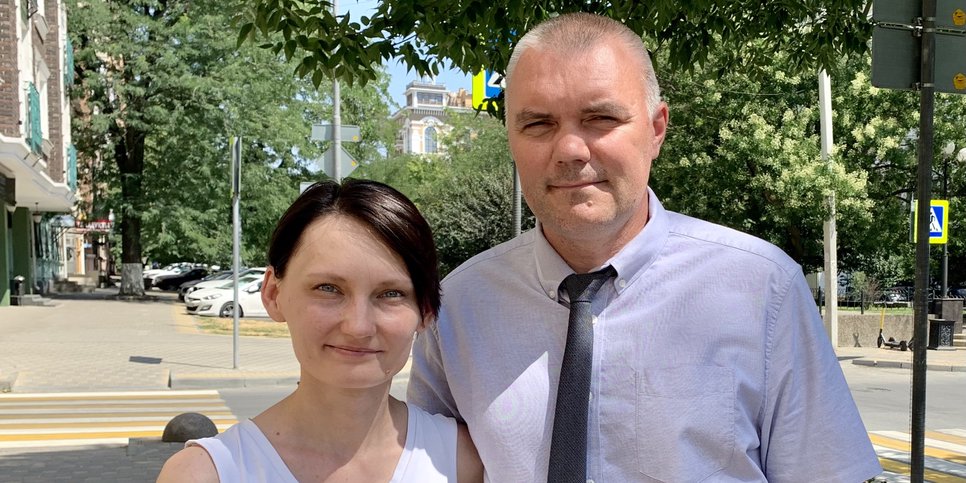In the photo: Andrey Okhrimchuk with his wife Ekaterina
In the photo: Andrey Okhrimchuk with his wife Ekaterina
Four Years Suspended Sentence for Faith. Appellate Court Approved the Sentence for Rostov Resident Andrey Okhrimchuk
Rostov RegionOn October 4, 2021 Rostov regional court upheld the conviction of 42-year-old Andrey Okhrimchuk. By its decision, court equated simple discussion of the Bible with friends to extremist activity.
The believer insists on his innocence. Although the verdict came into force, he has the right to appeal it in cassation and international instances.
Two months earlier, the Leninskiy District Court of Rostov-on-Don found Ohrimchuk guilty of participating in the activities of extremist activity and its financing. Judge Olga Borokhova sentenced the believer to 4 years of suspended sentence and 1 year of restricted freedom, thereby satisfying the prosecutor's request.
Prosecutor A. Chebrikov, who has been involved in trials against other believers from Rostov-on-Don, was the state prosecutor at the appeal hearing.
Andrey is an individual entrepreneur. Together with his wife, Ekaterina, they are raising a young daughter. On May 22, 2019, law enforcement officers broke into the believer's apartment and searched it in the presence of his schoolgirl daughter, and a year and a half later a criminal case was opened against him under two articles. He spent the last 11 months of his life under house arrest. Because Andrey is on the Rosfinmonitoring list, he is restricted in his financial capacity.
During the trial, no evidence of the believer's guilt was provided. The court of the first instance questioned a religious studies professor, who was confused in his testimony and appealed to outdated information about Jehovah's Witnesses. In addition, prosecutor I. Napalkova was present at the sessions. She was prompting her colleagues with pressure tactics, which she had already used on other believers before.
By now, nine believers, including three women, have been sentenced in Rostov-on-Don.
Russian government agencies have repeatedly asserted that liquidation of legal entities does not restrict religious freedom. For example, the Ministry of Foreign Affairs of the Russian Federation stated: "Members of a liquidated organization may independently practice their religion, including as members of religious groups, without registration, on the understanding that this does not involve extremist activity. However, law enforcement officers continue to unreasonably hang the label of "extremism" on the legitimate purely religious activities of believers. Andrey Okhrimchuk noticed this contradiction in his situation as well: "I am accused for the fact that I prayed, sang songs and read the Bible.
Human rights activists in Russia and abroad condemn the systematic persecution of Jehovah's Witnesses. Dr. Hubert Seivert, professor at the University of Leipzig, notes: "I cannot imagine that a court with sufficient information could come to the conclusion that Jehovah's Witnesses are extremists or could be dangerous politically [...] Moreover, it is worth recalling that Jehovah's Witnesses were only banned by dictatorial regimes, for example Nazi Germany. And I do not think that today's Russia is like that.

